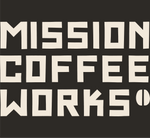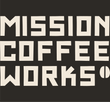To Caf or Not To Caf
The eternal question, to caf, or not to caf. It’s 3pm, you’ve had lunch, and three full caf coffees already today. There are two more hours of work to get through, but you’ve started to feel that familiar jittery feeling, the tension in the jaw, the nausea. What to do? Well, we can’t answer that for you, but here’s some information about caffeine, coffee, and decaffeinated coffee.
Is caffeine good for you?
Caffeine is actually an insecticide, produced by plants to keep pesky bugs away, and is inherently bitter. Arabica coffee contains less caffeine than robusta, hence why robusta can grow at lower altitudes than arabica — more protection from bugs.
Seeing as we’re not bugs, does that mean it’s ok to consume caffeine? Caffeine is a stimulant as we all know, it keeps us awake and helps us to concentrate, but too much can make hearts race and anxiety set in.
How much caffeine is there in coffee?
Surprise, surprise, there are different amounts of caffeine in different coffees. A good rule of thumb is about 100mg per drink, this is generally a specialty espresso-based drink or a mug of filter coffee. Cold brew ha the greatest caffeine amount of specialty beverages, upto 200mg. Non-specialty (X-large, venti, giant-gulp etc) beverages have more caffeine in, of course, more coffee = more caffeine.
How much caffeine is actually in decaf?
EU regulations state the 99.9% of decaf coffee has to be caffeine-free, this is going to mean about 0.1/0.2mg of caffeine per cup, which shouldn’t be a noticeable amount. In other countries (notably America) there can be a higher percentage of caffeine in your decaf though.
How much caffeine is safe to consume a day?
Most scientists think that up to 400mg a day of caffeine is a safe amount, and could potentially have a positive effect on our cardiovascular system. Some people are more intolerant of caffeine, so best to just listen to your body and cut down if you’re getting the jitters.
What is decaf coffee?
Decaf coffee is coffee that has had (most) of the caffeine removed from the green bean (before it’s roasted). There are several different ways to do this (specialty roasters usually include this information as the processing information). Water is generally used because caffeine is water-soluble, and you won’t see any specialty coffee using any methods that involve solvents. One of the most popular ways for specialty coffee to be decaffeinated is the Swiss water decaffeination method: all the caffeine is dissolved with hot water which then passes solution through a charcoal filter removing the caffeine, flavourful and caffeine-free water then used to remove caffeine from another batch of coffee, helping to keep the flavour intact.
The best bet is to have both full caf and decaf around, and lower caffeine varietals as well if you can get a hold of some, plus always have a banana ready to combat the jitters.
*NB we’re not scientists or doctors and this article isn’t intended to replace the advice of your doctor or consensus of the scientific community.








Leave a comment